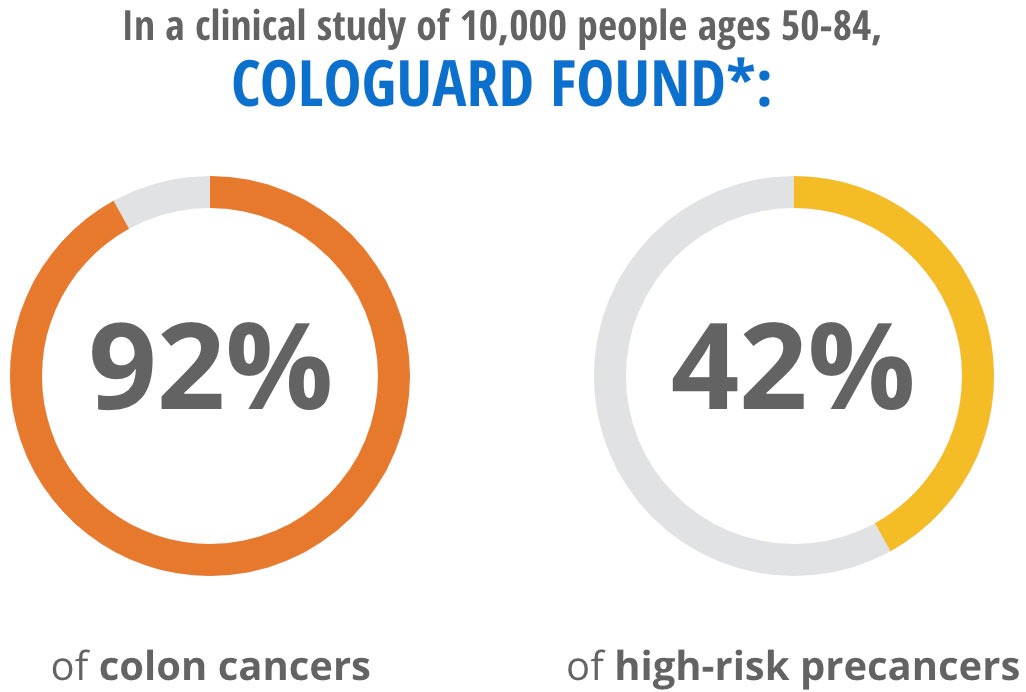Preventive Medicine
Cologuard® Screening
The screen for colon cancer
If you are 45 or older and at average risk for colon cancer, screen as soon as your healthcare provider recommends.
Cologuard is intended to screen adults 45 years of age and older who are at average risk for colorectal cancer by detecting certain DNA markers and blood in the stool.

Effective Colon Screening
Cologuard finds 92%* of colon cancers, even in early stages.1,2 In fact, it finds 94% of stage I and stage II cancers.
If you and Dr. Lioce agree that Cologuard is right for you, we will order it and a collection kit will be shipped right to your door.

WHO IS IT RIGHT FOR?
If you are 45 and older and at average risk for colon cancer, Cologuard may be right for you. Cologuard is not for everyone. It is not a replacement for diagnostic or surveillance colonoscopy in high risk individuals.
Cologuard may not be right for you if:
- You have a personal history of colon cancer, adenomas or other related cancers
- You have a family history of colon cancer (one or more first degree relatives diagnosed with colon or rectal cancer before the age of 60, or two or more first degree relatives diagnosed with colon or rectal cancer of any age)
- You have had a positive result from another screening method in the last six months
- You have been diagnosed with a condition that places you at high risk for colon cancer. These include but are not limited to: Inflammatory Bowel Disease, Chronic ulcerative colitis, Crohn’s disease, Familial adenomatous polyposis
- You have been diagnosed with a relevant cancer syndrome passed on from your family, such as Hereditary non-polyposis colorectal cancer syndrome, Peutz-Jeghers Syndrome, MYH-Associated Polyposis, Gardner’s syndrome, Turcot’s (or Crail’s) syndrome, Cowden’s syndrome, Juvenile Polyposis, Cronkhite-Canada syndrome, Neurofibromatosis, or Familial Hyperplastic Polyposis
- Results should be interpreted with caution for individuals over age 75, as the rate of false positives increases with age